These days, most drivers rarely venture beyond the range of cell phone coverage. But, winter presents unique challenges and even short drives can become treacherous. If you’re planning a long road trip during winter’s harshest months, it’s best to be prepared. A patch of ice or a sudden blizzard can turn a peaceful getaway into a potentially dangerous situation. If the weather wasn’t enough to worry about, you’ll also have to keep the unexpected in mind. A flat tire, a mechanical failure, or the heater going out could see things go even further downward. If you’re forced to spend a night, or even a few nights camping in your car in winter, being prepared is key.
Obviously, if you break down or get into trouble in a high-traffic area where you’re close to a gas station or have cell phone coverage, you won’t have to worry about a survival situation. Trek to the gas station or give your friend a call. Help, if you’re in a good area, shouldn’t be too far away. If, however, you’re in a more rural area where there aren’t a lot of cars on the road and gas stations are miles apart, you could be in for a rough night. Here’s a guide on how to survive a road trip breakdown in the dead of winter.
Tell a friend where you’re headed and when you expect to get there
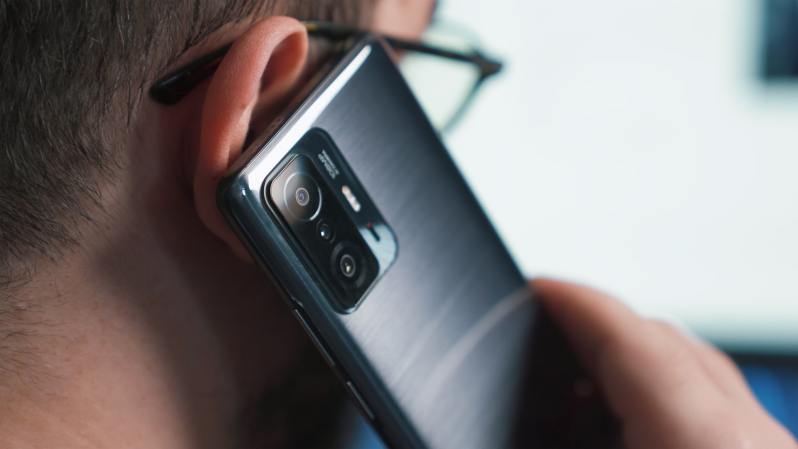
Hikers know the easiest way to stay safe in the backcountry is to tell a friend or family member where they’re going and for how long. Let them know you’ll text them when you’re safe. If they don’t hear from you by a specific time, it’s safe to assume something went wrong. This is the simplest and single best tip on this list. It’s also the most important because all the best planning and survival gear in the world can’t protect you if no one can find you to rescue you. Best of all, it’s free.
Know your route (and don’t rely on GPS)
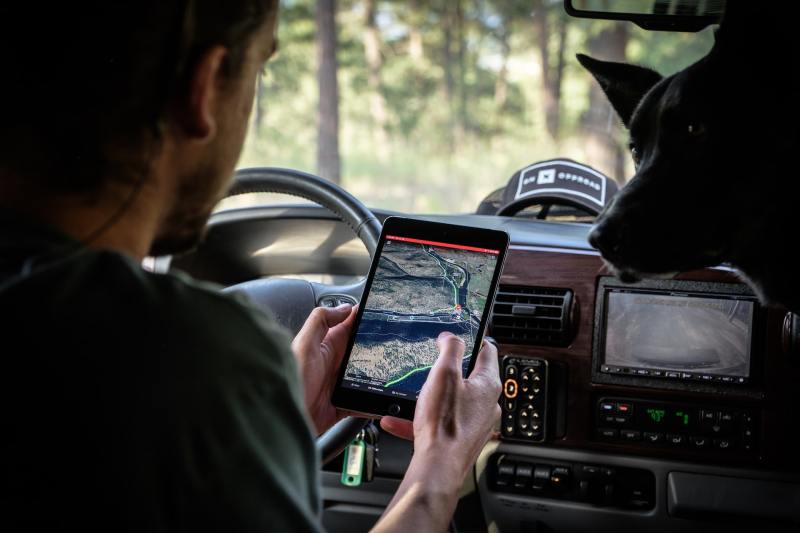
It might seem obvious, but thoroughly knowing your route and the terrain you’re heading into is critical. Standard GPS devices and smartphone map apps offer little help when traveling in truly rural areas. Be sure to have a redundant map setup. That means bringing a purpose-built GPS device like Garmin’s Overlander and packing a topographical map as well. Electronics can fail; paper doesn’t.
Dress the part and pack extra layers
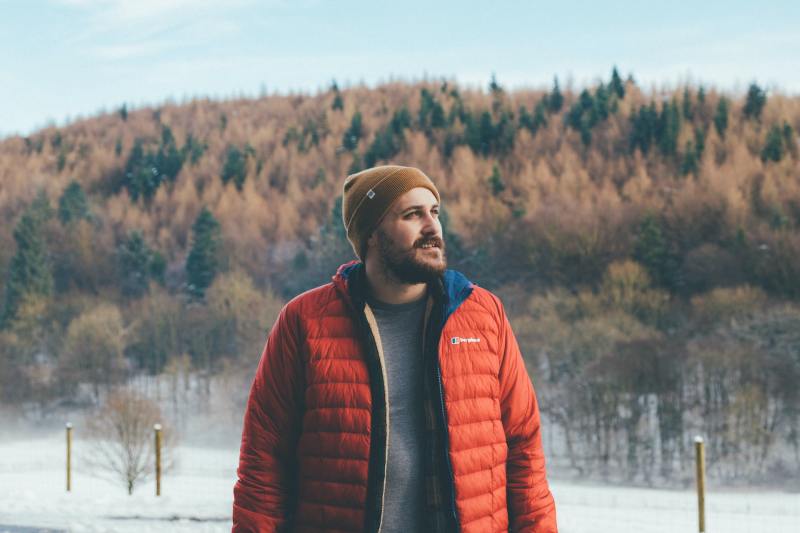
If you’re planning an out-of-the-way winter adventure, dress as though you’re heading out for a cold-weather hike. Even if you’re not expecting to step out of the car, bring a cozy hat, gloves, and plenty of insulating layers (Merino wool is best). For safety’s sake, “more is more.” Pack more than you think you’ll need. It’s better to have it and not need it than to need it and not have it. It’s easy to assume you’ll be warm enough at high noon, but once the sun drops on the first unexpected night in your vehicle, you’ll be thankful for that extra insulation.
If you frequently travel in winter, especially in rural areas where breakdowns might be a serious concern, consider keeping extra warm clothing in the back of your car throughout the season. A duffel bag (like Matador’s ultra-light ) packed with compact, collapsible, travel-friendly winter gear can be a literal lifesaver for you or your passengers. At the very least, a packable puffer jacket (like ), packable winter boots (we like ), and extra socks and gloves.
With the right gear, you can summon help from anywhere
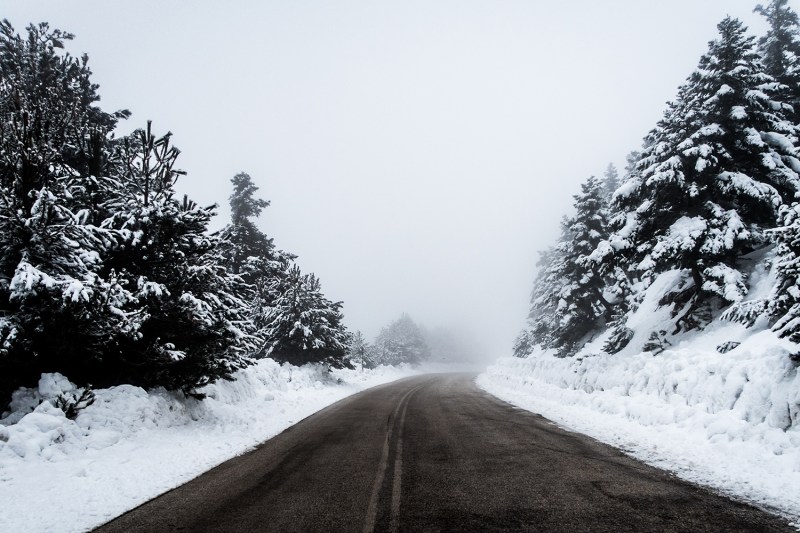
If things do go sideways, finding help is priority number one. With the right gear, you can summon help from almost anywhere on earth. Always bring your smartphone, of course. But prepare for the worst-case scenario by assuming it won’t be an option and that you may not have reception. Consider maybe you won’t have cell service, or you’ll forget your phone at home, or perhaps it won’t survive a possible car crash. If you’re taking a leisurely off-road drive, the first scenario is the most likely. Don’t count on your cell phone to be your only lifeline. Always pack a backup communication plan.
A device like the Fusion2Go Max from SureCall is a hardwired cell signal booster that’s easy to install and maximizes the range of any smartphone’s reception. It’s great for overlanding enthusiasts and anyone who lives in or routinely travels through rural areas.
An even better option is a dedicated personal locator beacon or satellite messenger. For between $200-$300 plus a nominal monthly fee, devices like Garmin’s inReach Mini or the Spot X allow for texting from literally anywhere on the planet. They also feature a built-in SOS button for on-demand rescue if things go very, very wrong, and you’ve exhausted all other options.
If all attempts for outside help fail, the only other option is to find help on foot. If you’re traveling alone, there’s only yourself to worry about. If you’re traveling with a significant other and possibly children, however, you may need to leave them behind while you go for help. A pair of walkie-talkies is a great way to keep in touch along the way. The Talkabout T800 Two-Way Radios from Motorola are compact, affordable, and boast a max range of up to 35 miles.
Hunker down for a long, cold Night
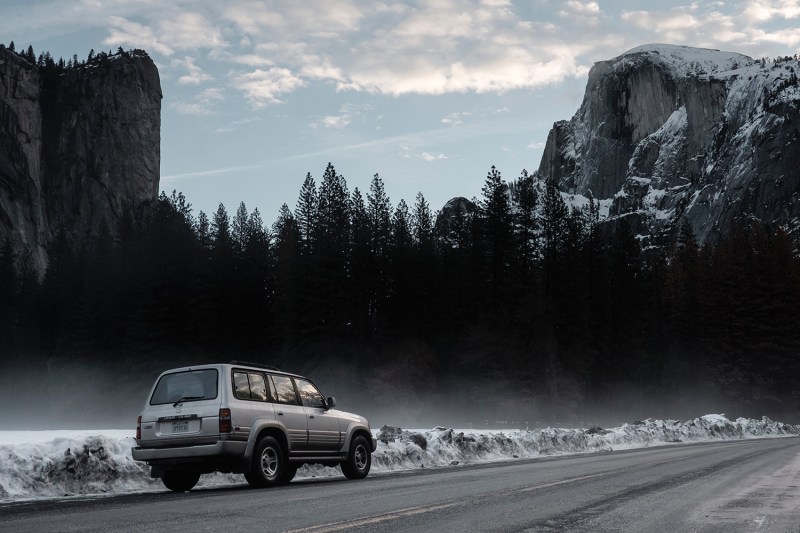
Assuming you can find help, it may be hours or days away, depending on just how far from civilization you find yourself. Preparing for an extended stay in your vehicle is critical. It’s also surprisingly inexpensive. The keys, of course, are keeping warm, hydrated, and calm.
At the very least, keep a “go-bag” backpack or duffel in your car at all times. Think about the essentials like a gallon or two of water, a space blanket, and energy bars or MREs (meals ready to eat). In the winter, keeping warm is just as important as staying fed and hydrated. A camp quilt or four-season sleeping bag should be enough to keep a solo road tripper or couple safe. These things can literally mean the difference between life and death.
It also goes without saying that a proper first aid kit is a must-have in your trunk at all times. If you’re routinely making rural trips in winter, consider crafting a dedicated emergency bag or buy a comprehensive ready-made bug-out bag to save time.
Editors' Recommendations
- Costco has a secret online store, Costco Next, that any member can access – here’s how
- Here’s how to live in your car comfortably for a few weeks (or longer) like a pro
- How to drive in the snow: The complete guide to staying safe this winter
- How to winterize a car: The ultimate checklist
- How to put on snow chains for safer winter driving



